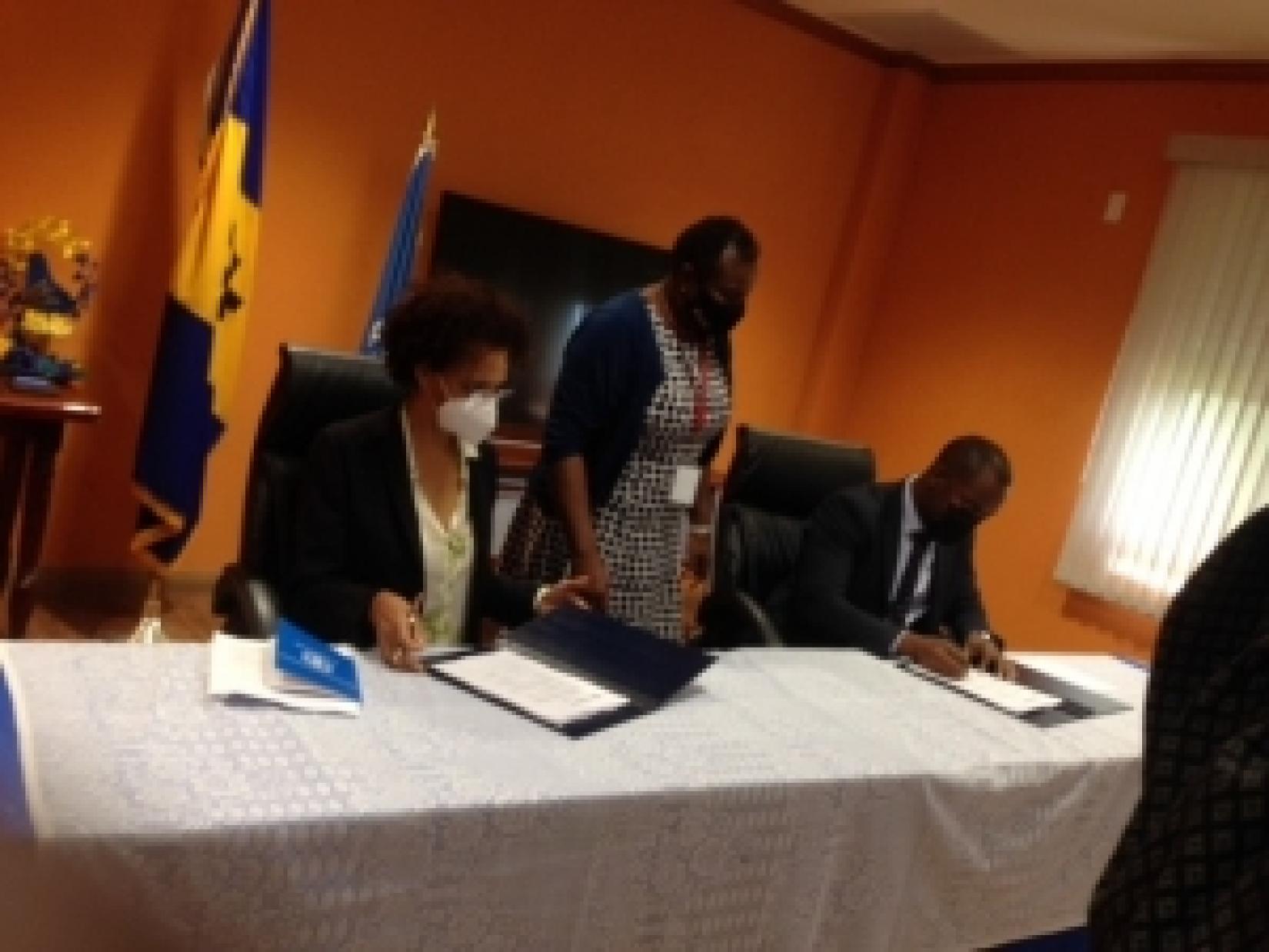Barbados tuna fishery to generate an additional 2 million dollars annually in gross revenue
19 November 2020
- The substantial demand for tuna among sushi and sashimi lovers mainly in North America has been the driving force behind the development of tuna fisheries in the Caribbean region for exports.

As a result of this global demand, a number of countries in the Caribbean region, such as Barbados, have developed a yellowfin tuna (YFT) fishery for the export market which is important not only to generate foreign exchange, but to enhance livelihoods and create employment.
Due to the great care of fisherfolk and exporters, Barbados is responsible for exporting a large number of very high quality tuna’s. The fishing industry in Barbados employs approximately 6600 people. The pelagic longline fishery in Barbados consists of around 30 Barbadian longline vessels that fish during the year with approximately 3 crew on vessels ranging in size between 10-15 m. In 2019 a total of 469 tonnes of large pelagic species was landed in Barbados. The value of 300T of tuna at local basic grade is estimated at BDS $6.6 million while high export grade can value BDS $10 million. Tuna is currently the only seafood export product of Barbados.
The Food and Agriculture Organization of the United Nations (FAO) is collaborating with The Ministry of Maritime Affairs and the Blue Economy on a project entitled “Sustainable Fish Value Chains for Small Island Developing States (SVC4SIDS)” to further develop and improve the tuna fishery in Barbados. The funds for this project have been granted by the Government of the Republic of Korea to the FAO and the project will run until April 2025. The project, led by FAO, has a total value of USD 5.3 million whereby Barbados will benefit of approximately half of these funds over a period of 5 years.
The SVC4SIDS project is in line with the overall objective of Ministry of Maritime Affairs and the Blue Economy and of FAO in developing the Blue Economy in Barbados as it will improve the social, environmental and economic benefits of the pelagic fishery in Barbados. This project will further develop and improve the tuna fishery revenues and thus enable a transitioning of the fishery from exporting whole tunas to a fresh loined product providing increased revenues for fisherfolk, private sector and the government.
The project will contribute to improving the economic performance of the tuna value chain through strengthened market access and more conducive business and regulatory environments, as well as enhanced financing, investment opportunities and capacity for long-term economic sustainability. Fisherfolk, private sector and the government will be actively working together to take the benefits of the Blue Economy directly to the fisherfolk who are an essential element of any development in this sector as it is expected to improve the capacity of the fisherfolk, improve their revenues, generate better decision making information and support their stewardship through participation in management of the fishery.
In addition, attention will be given to ensure that the tuna value chain is resilient to climate change impacts and aligned with climate change adaptation and mitigation efforts. The project will ensure improved ecological sustainability of the fisheries sector through the promotion of more ecological sustainable fishing gears, strategies to improve fuel efficiency and enhanced fisheries governance ensuring increased compliance with national and international regulations.
The Honorable Minister Kirk Humphrey, Minister of Maritime Affairs and the Blue Economy and Dr Renata Clarke, FAO Sub-regional Coordinator for the Caribbean formalized the project on 18 Nov 2020 at the office of the Ministry of Maritime Affairs and the Blue Economy.








